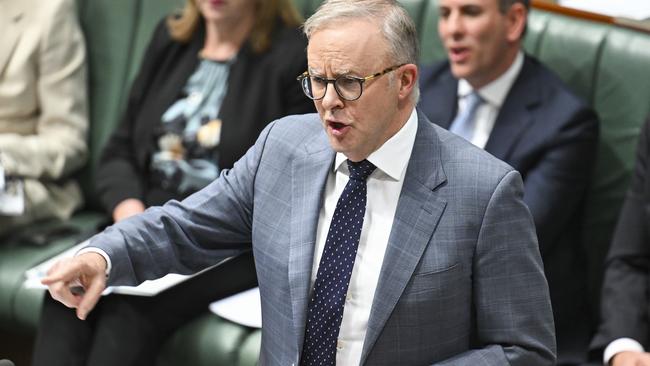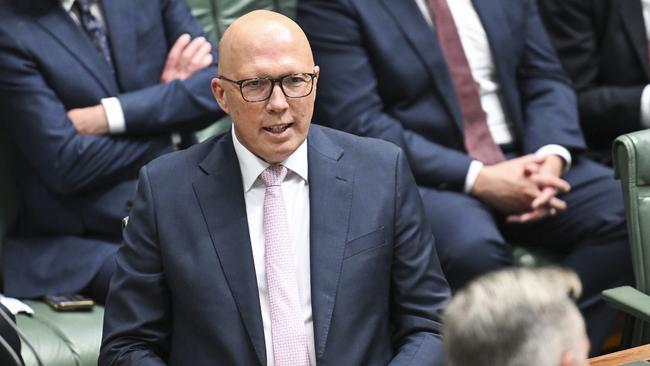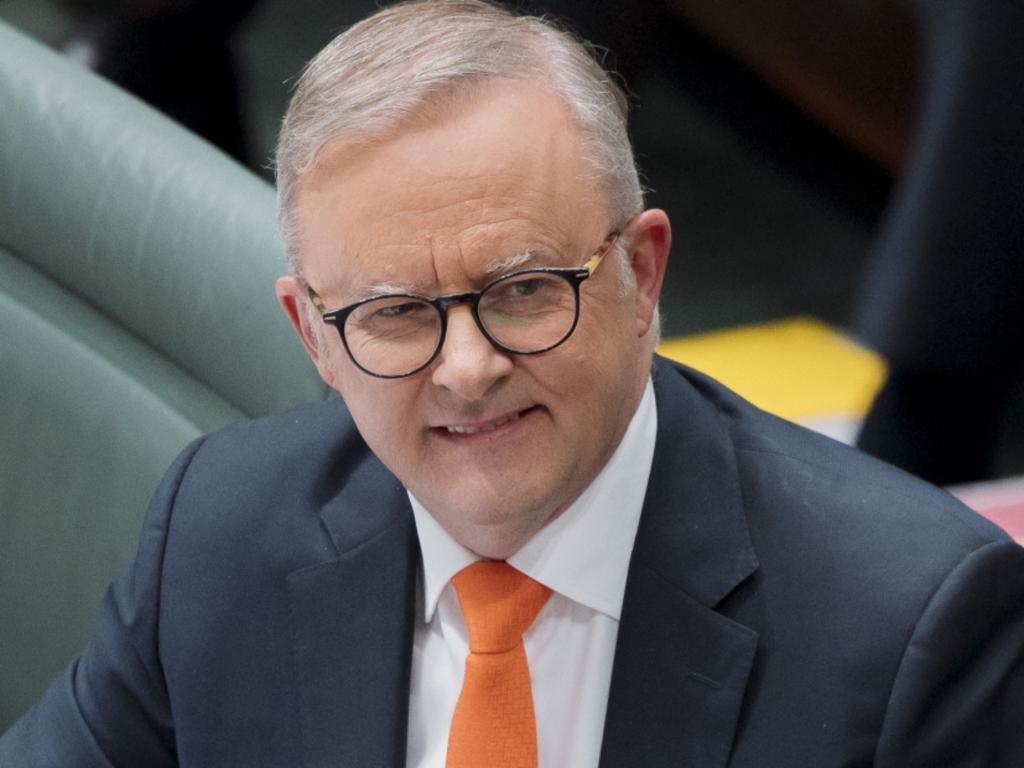PM to shelve bid for new environment watchdog as eyes deal on Future Made in Australia
Anthony Albanese is unlikely to establish an environmental watchdog before the election, after the nation’s biggest employers raised concerns of a ‘secret deal’ between Tanya Plibersek and the Greens.

Anthony Albanese is unlikely to establish an environmental watchdog before next year’s election, after the nation’s biggest employers raised concerns of a “secret deal” between Environment Minister Tanya Plibersek and the Greens that they warned would cause “significant economic harm”.
While the Prime Minister is eyeing a deal with the Greens on his Future Made in Australia agenda, The Australian understands any agreement with Adam Bandt on a key plank of the government’s nature-positive reforms – establishing an environment protection agency – was unlikely to be clinched this week.
There was increasing speculation on Tuesday among business and industry leaders of a deal between the government and the Greens, with sources saying they were concerned Ms Plibersek might be given the power to unilaterally establish environmental standards, without consultation on what those standards were.
The Coalition also feared Labor was edging closer to a Greens EPA deal as Ms Plibersek and Greens environment spokeswoman Sarah Hanson-Young continued negotiating, but The Australian has confirmed no deal has been made.
“If the Greens get their way, there will likely be significant economic harm inflicted on the Australian economy and jobs,” Business Council of Australia chief executive Bran Black said.
“Major housing, mining and critical minerals and renewable projects could be put at risk with the addition of more regulation that only creates a higher bar for proponents, without the necessary benefits to approval speeds and processes that the Samuel Review recommended.”
Minerals Council of Australia chief executive Tania Constable urged the government to come clean about its “secret deal” with the Greens that would “only damage the economy, drive away investment, and destroy jobs”.
“What concessions has the government made to secure the Greens’ support, turning a flawed bill into an even greater burden for businesses, farmers and, ultimately, Australian households?” she said.
“The government should be focused on cost of living, not inventing some giant new bureaucracy in Canberra that will dictate from desks what projects should go ahead, and what projects should not, without any consideration to the economic benefits.”
The Greens have dropped their demand for a climate trigger and instead are pushing Labor to remove the Regional Forest Agreement and Continuous Use exemptions in environmental laws, as they call for the end of native forest logging.
As Labor MPs were told they might be required for an extra sitting day on Friday in an attempt to pass more government bills before Christmas, the Greens declared they were “very supportive in principle” of the green hydrogen production tax credits unveiled by Jim Chalmers but were worried the fund could be used to prop up coal and gas projects.
The Prime Minister on Tuesday vowed to “leave nothing on the field” to ensure Labor governs with a majority after the election, telling MPs there’ll be only a brief break over Christmas as he prepares to enter campaign mode.
In his end-of-year address to caucus, marking possibly the final meeting of Labor MPs before an election is called, Mr Albanese said the Greens had “folded in on itself” on the government’s housing agenda and he was hopeful Help to Buy would be the first of many bills to pass in the final sitting week of the year.
Peter Dutton accused the government of faltering and taking decisions that were making it even harder for families, while insisting the Coalition had finished the year in a strong position.

It came as a social media ban on under-16s – which is set to pass with bipartisan support this week – divided the Coalition partyroom, with Nationals senator Matt Canavan and Liberal senator Alex Antic prepared to cross the floor and others reserving their right to do so.
In a lengthy Coalition partyroom meeting where two thirds of the debate was taken up talking about the ban, 19 MPs spoke in favour of the bill, two said they’d vote against it and one reserved their right to cross the floor.
The Opposition Leader told Coalition MPs that communications spokesman David Coleman had negotiated “exceptional” concessions to the bill, which will ensure no social media platforms can compel Australians to provide digital ID or government documents like a passport or drivers licence to establish their age.
Several Labor MPs were concerned the social media ban was being rushed through parliament but they weren’t entertaining crossing the floor.
“It’s the wrong way to go about it,” one Labor MP said. “It’s simplifying a very complex issue.”
Other government MPs described the push to pass the legislation this week as being driven by “populism” rather than good policy and felt the issue could be “a distraction from the main game” of the twin crises of the cost of living and lack of housing.




To join the conversation, please log in. Don't have an account? Register
Join the conversation, you are commenting as Logout